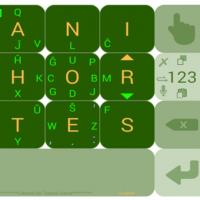Beiträge: 37
Sprache: English
PrimeMinisterK (Profil anzeigen) 7. April 2020 04:23:38
I am going to through Lesson 5 in the Kurso and there's a discussion on Iu and Neniu.
Some people came whom, I don't know. is translated as Venis iuj personoj, kiujn mi ne konas.
I guess kiuj takes the accusative -n because it's the object of the verb konas, but why doesn't personoj receive the -n since it's the focus of venis?
Furthermore, Who came yesterday? is translated as Kiu venis hieraŭ. Why does Kiu not in this case receive the -n?
This is maddening. Just when I start to think I'm making progress and starting to understand things, I get hit with something that makes me question everything I think I've learned.
LuigiFusi (Profil anzeigen) 7. April 2020 04:57:34
sergejm (Profil anzeigen) 7. April 2020 06:11:17
iuj personoj are its subject.
PrimeMinisterK (Profil anzeigen) 7. April 2020 06:23:57
sergejm:Venis is intransitive verb, it cannot have object.Maybe I'm not using the right terms. A lot of the technical language when it comes to grammar goes over my head.
iuj personoj are its subject.
I thought though that any time you have a verb other than esti, whatever the verb's focus is receives the -n.
I think the accusative is just as confusing as the correlatives, now that I consider it.
Urho (Profil anzeigen) 7. April 2020 07:01:34
Urho (Profil anzeigen) 7. April 2020 07:28:23
schnellfenster (Profil anzeigen) 7. April 2020 07:38:29
Verbs like run, walk, come, fall are passive or reflexive in the sense that they only affect the subject and so are intransitive.
Re correlatives, it's easier to learn the handful of affixes and their functions rather than memorise the 45 individual words that their combos make. So if for example you remember that ki- prefixes a question; cxi-, a universal term; and if you memorise the suffixes, knowing that say -am signifies time or -om, quantity, then you can connect those modular elements to meet the needs of yr expression.
PrimeMinisterK (Profil anzeigen) 7. April 2020 08:32:27
Urho:Jen 100 bazaj verboj de Esperanto (ĉe la lernu!-forumo).
Urho:Jen utila bildo de Tabelvortoj (korelativoj)Awesome, thanks!
By the way, what is your use of Jen here? My understanding is that it means "Look! or Behold!" Does it have a difference nuance here in your sentence?
PrimeMinisterK (Profil anzeigen) 7. April 2020 08:36:26
schnellfenster:There are transitive and intransitive verbs. A transitive takes an object. For example, she eats an apple.. something else other than the eater is affected.. the apple. Again, in a sentence like I beat eggs.. the action of the verb directly affects the object, in other words something is beaten, the eggs.So the subject (or whatever the proper word is) when an intransitive verb is in use does not receive the accusative -n?
Verbs like run, walk, come, fall are passive or reflexive in the sense that they only affect the subject and so are intransitive.
Re correlatives, it's easier to learn the handful of affixes and their functions rather than memorise the 45 individual words that their combos make. So if for example you remember that ki- prefixes a question; cxi-, a universal term; and if you memorise the suffixes, knowing that say -am signifies time or -om, quantity, then you can connect those modular elements to meet the needs of yr expression.
I think I'm getting it, but can you provide a few more examples?
Metsis (Profil anzeigen) 7. April 2020 08:40:31
PrimeMinisterK:I guess, you're being put off by English. English is notorious for lacking mark-up or any marks that would reveal the role of a word. It mainly relies on word order and context. It has "how" (in which way) for kiel and "how much" for kiom, which might lead some to think that there are two Esperanto words for "how".
It seems that at least a handful of the correlatives though not only have multiple meanings depending on the context, but many of them also have meanings that seem nearly identical to the meanings of other correlatives so that it can be hard to know which one to go with.
PrimeMinisterK:Kio is the general asking correlative, when you don't know anything about the thing you're asking about. Using Sudanglo's examples
It seems that Kiu can be either who or which?
- Kion vi volas? : What do you want?
- Kiu estas la plej malmultekosta? : Which is the cheapest?
- Kiu vi estas? : Who are you?
PrimeMinisterK:Sergejm kaj Schnellfenster pravas. The separation to transitive and intransitive ones is very important. English tend to cut corners and often uses same verb for different things. Compare for instance
I thought though that any time you have a verb other than esti, whatever the verb's focus is receives the -n.
- He opens the door.
- The door opens.
- Li malfermas la pordon : He opens the door.
- La pordo malfermiĝas : The door opens.




